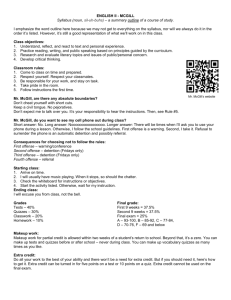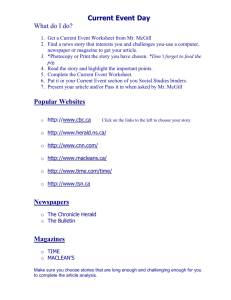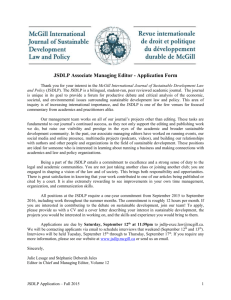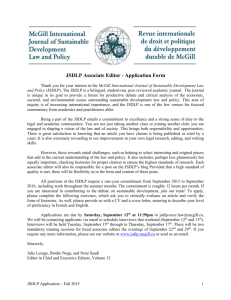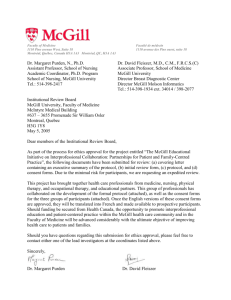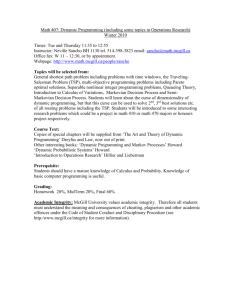Syllabus - Buncombe County Schools
advertisement
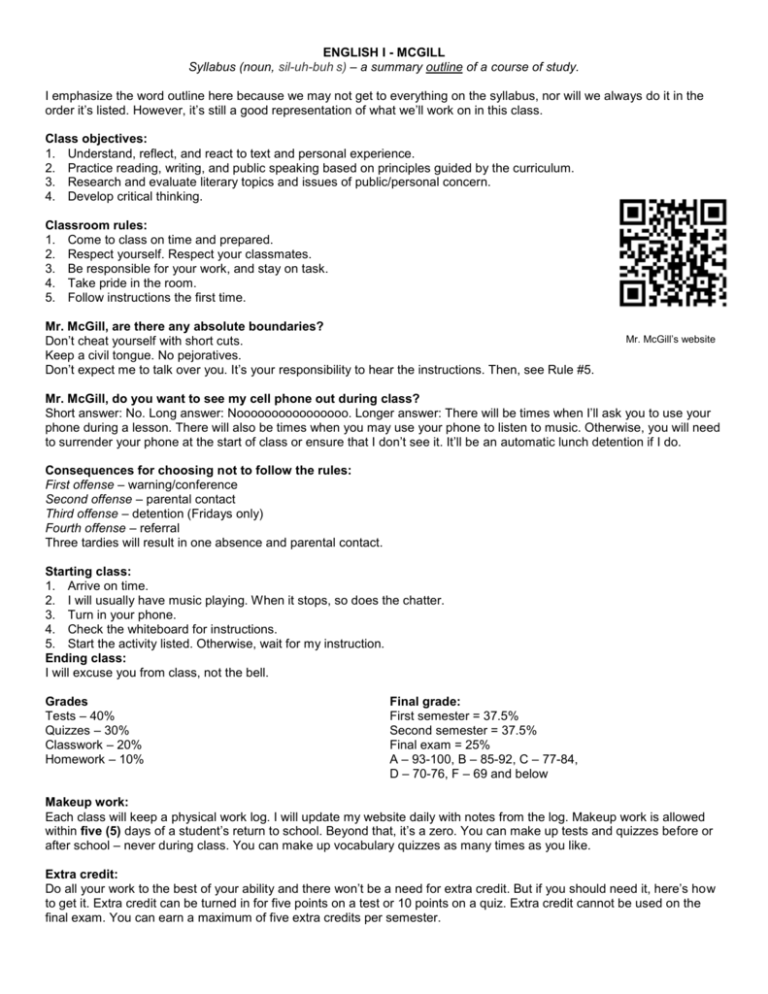
ENGLISH I - MCGILL Syllabus (noun, sil-uh-buh s) – a summary outline of a course of study. I emphasize the word outline here because we may not get to everything on the syllabus, nor will we always do it in the order it’s listed. However, it’s still a good representation of what we’ll work on in this class. Class objectives: 1. Understand, reflect, and react to text and personal experience. 2. Practice reading, writing, and public speaking based on principles guided by the curriculum. 3. Research and evaluate literary topics and issues of public/personal concern. 4. Develop critical thinking. Classroom rules: 1. Come to class on time and prepared. 2. Respect yourself. Respect your classmates. 3. Be responsible for your work, and stay on task. 4. Take pride in the room. 5. Follow instructions the first time. Mr. McGill, are there any absolute boundaries? Don’t cheat yourself with short cuts. Keep a civil tongue. No pejoratives. Don’t expect me to talk over you. It’s your responsibility to hear the instructions. Then, see Rule #5. Mr. McGill’s website Mr. McGill, do you want to see my cell phone out during class? Short answer: No. Long answer: Noooooooooooooooo. Longer answer: There will be times when I’ll ask you to use your phone during a lesson. There will also be times when you may use your phone to listen to music. Otherwise, you will need to surrender your phone at the start of class or ensure that I don’t see it. It’ll be an automatic lunch detention if I do. Consequences for choosing not to follow the rules: First offense – warning/conference Second offense – parental contact Third offense – detention (Fridays only) Fourth offense – referral Three tardies will result in one absence and parental contact. Starting class: 1. Arrive on time. 2. I will usually have music playing. When it stops, so does the chatter. 3. Turn in your phone. 4. Check the whiteboard for instructions. 5. Start the activity listed. Otherwise, wait for my instruction. Ending class: I will excuse you from class, not the bell. Grades Tests – 40% Quizzes – 30% Classwork – 20% Homework – 10% Final grade: First semester = 37.5% Second semester = 37.5% Final exam = 25% A – 93-100, B – 85-92, C – 77-84, D – 70-76, F – 69 and below Makeup work: Each class will keep a physical work log. I will update my website daily with notes from the log. Makeup work is allowed within five (5) days of a student’s return to school. Beyond that, it’s a zero. You can make up tests and quizzes before or after school – never during class. You can make up vocabulary quizzes as many times as you like. Extra credit: Do all your work to the best of your ability and there won’t be a need for extra credit. But if you should need it, here’s how to get it. Extra credit can be turned in for five points on a test or 10 points on a quiz. Extra credit cannot be used on the final exam. You can earn a maximum of five extra credits per semester. 1. Performance: Pick out a poem or song. I’ll approve it. Perform it at the beginning of class Friday. 2. English in the real world: Spot a typo or grammatical error* and bring it to me. Students can’t use the same errors. First come, first served. *Subject to approval Supplies: 1. 3-ring binder with college-rule paper (no spiral notebooks) 2. Five dividers – Notes, Grammar, Vocabulary, Writing, Everything Else 3. 1 composition notebook 4. Pencils (mechanical preferred) 5. Black/blue pens 6. 1 box of tissues 7. USB flash drive (optional, but strongly recommended) Labeling your work: Write the following in the top-right corner of anything you turn into me. Mr. McGill’s Twitter Ima Student English I (1a) Date Preparation: I have more pencils than I know what to do with, and I have absolutely no problem sharing on days when you forget your own writing utensil. Even better, I only charge one shoe! Bathroom: Barring emergencies, I allow one student out at any given time to use the restroom. You will sign in/out on the log and take the bathroom pass with you. No one else is leaving until the bathroom pass returns. Sample work: Bell-ringer writing prompts Weekly vocabulary – words on Monday, homework by Wednesday, quiz on Friday, test every 4 weeks Self-selected reading (Fridays) Grammar practice (Mondays) Research paper (freshman project) Tentative course outline: Unit 1 How to take notes How to brainstorm How to read (yes, how to read) Parts of speech/sentence Literary terms MAJOR WORKS WE’LL READ The Odyssey To Kill A Mockingbird The Chocolate War Romeo and Juliet Big Fish Unit 2 – Coming of age: Who are you? What do you face? Unit 3 – Struggles: How do relationships shape who you become? Unit 4 – Stuff: How do material things control us? Unit 5 – Violence: How do violent acts affect those involved? Unit 6 – Freshman research project Unit 7 – Death: How do we deal with loss? Unit 8 – Love: How does love drive us? Unit 9 – Change: What can you accomplish? Unit 10 – Poetry Final thoughts: English class is all about reading, writing, and speaking. We’re going to do all three often enough that you feel comfortable with any of them. Know that I am here for you. I want all of you to succeed, and I will make myself available whenever possible. You can email me at jason.mcgill@bcsemail.org. I encourage everyone to follow the class Twitter feed @McGill_English and check my school website regularly at tinyurl.com/crltad3. I am open to any questions, comments, fears, hopes, confessions, and concerns you may have. Let’s have a great year.
